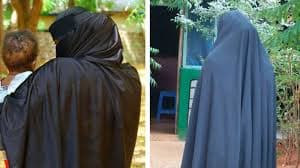We're loading the full news article for you. This includes the article content, images, author information, and related articles.
A sexual assault case in Garissa involving a tuk-tuk rider highlights the systemic failure of justice for survivors in Northern Kenya, where the traditional 'Maslaha' system is unlawfully used to settle serious crimes

GARISSA, KENYA – A harrowing account of a young woman from Garissa County, Amina Hassan*, has cast a harsh spotlight on the persistent barriers to justice for survivors of sexual and gender-based violence (SGBV) in Northern Kenya. According to a report by the Nation Media Group on Friday, November 21, 2025, Hassan was defiled by a tuk-tuk rider who used a needle to inject her with an unknown substance, causing her to lose consciousness before the assault. When she regained consciousness, she realized she had been sexually assaulted.
Hassan reported the incident to the police, and the perpetrator was identified and arrested. However, her pursuit of justice through the formal legal system was deliberately thwarted when community elders intervened, compelling her and her family to settle the case through Maslaha, a traditional alternative dispute resolution mechanism. In this instance, a payment of KSh 60,000 was negotiated, with half the amount being kept by the elders themselves. This settlement effectively ended the criminal case before it could proceed to court, allowing the alleged perpetrator to walk free.
The use of Maslaha, a system historically used for resolving civil disputes within the Somali community, in grave criminal cases such as rape and defilement is a significant and controversial issue. Human rights activists and judicial officers have repeatedly warned that applying this system to sexual violence cases is unlawful and detrimental to survivors. According to Fatuma Abdi, a human rights and gender activist in Wajir, Maslaha is a "nightmare for survivors" and the "biggest barrier to justice for women and girls," as it overwhelmingly favors perpetrators and silences victims. A survey by Care Kenya noted that the Maslaha system actively undermines the formal judicial process. In January 2024, the High Court of Kenya declared that out-of-court settlements for sexual violence cases are unconstitutional and illegal, as they infringe upon the victim's rights and the state's duty to prosecute crime.
Despite this, the practice persists in regions like Garissa and Wajir, driven by deep-rooted cultural norms and a lack of faith in the formal justice system. Activists report that elders often pressure families and compromise witnesses, leading to the collapse of cases that do reach the courts. Garissa-based human rights activist Muktar Dahir stated that the community often condones the vice by protecting perpetrators through Maslaha, with some elders reportedly profiting from these settlements.
Amina Hassan's case is not an isolated incident but is reflective of a broader crisis of SGBV in Northern Kenya. Between January and October 2025, Garissa Police Station recorded 19 defilement cases involving minors. In 2024, 37 sexual violence cases were reported in the same jurisdiction. Similarly, Wajir County reported 44 defilement and 40 rape cases between January and September 2025. These figures likely represent only a fraction of the actual incidents, as many survivors do not report attacks due to stigma, fear, and the prevalence of systems like Maslaha.
The perpetrator's identity as a "rider" also aligns with national crime trends. A comprehensive report by the National Crime Research Centre (NCRC) titled "Boda Boda Motorcycle Transport and Security Challenges in Kenya" identified a high prevalence of crime associated with the boda boda sector. The report noted that crimes committed by riders include assault, robbery with violence, rape, and defilement. The NCRC study highlighted that pervasive unemployment, poverty, and weak regulation of the sector are major contributing factors to this criminality.
The continued use of traditional justice systems for serious crimes poses a direct challenge to the rule of law in Kenya. The Constitution of Kenya 2010 provides for alternative dispute resolution but not for criminal matters such as sexual offenses. The Office of the Director of Public Prosecutions (ODPP) has the sole constitutional mandate to decide whether to charge a suspect, a power that is usurped by Maslaha settlements. The ODPP has previously stated that plea agreements are prohibited in cases of sexual offenses under the Sexual Offences Act, 2006.
The failure to prosecute such cases not only denies individual survivors justice but also fosters a culture of impunity that endangers women and girls. Activists are calling for legal reforms to explicitly outlaw the use of Maslaha in sexual violence cases and for robust community awareness campaigns to dismantle the cultural norms that protect perpetrators. For survivors like Amina Hassan, whose lives are irrevocably altered, the fight for justice continues against a system that has failed to protect them, both on the streets and in the council of elders.
Keep the conversation in one place—threads here stay linked to the story and in the forums.
Sign in to start a discussion
Start a conversation about this story and keep it linked here.
Other hot threads
E-sports and Gaming Community in Kenya
Active 9 months ago
The Role of Technology in Modern Agriculture (AgriTech)
Active 9 months ago
Popular Recreational Activities Across Counties
Active 9 months ago
Investing in Youth Sports Development Programs
Active 9 months ago